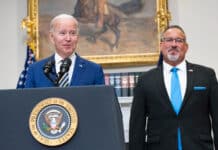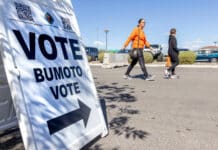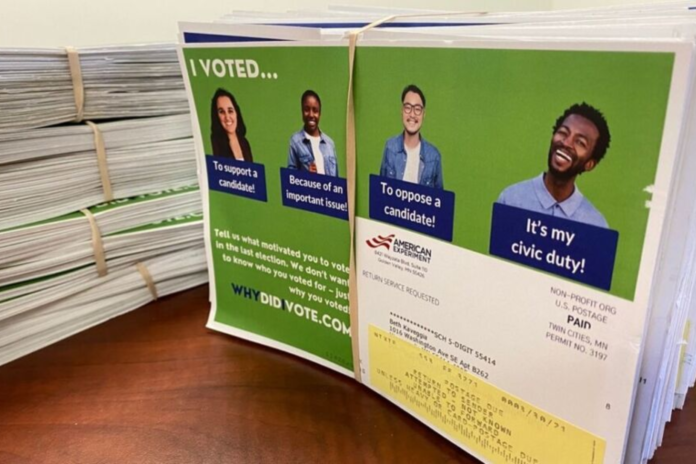
A Minnesota think tank released a new report this week exposing flaws in the state’s election system and recommending a number of possible reforms.
The “‘vote now, check later’ verification process” that Minnesota uses for same-day voter registrants has a number of “weaknesses,” according to the report.
Minnesotans who register to vote prior to Election Day are subjected to a verification process before their vote is counted. Same-day registrants go through the same verification process but only after the election.
“Their vote is counted,” the report says. “The county auditor runs the same verification using the Department of Public Safety database and the Social Security database. But if a problem is discovered, it is too late, because the vote has already been counted.”
This means “people who register to vote on Election Day are treated differently from those who register in advance,” according to John Hinderaker, president of the Center of the American Experiment (CAE).
Postal verification experiment
Hinderaker’s group mailed more than 11,000 postcards to same-day voter registrants in Minneapolis that resulted in an 8% return rate, exposing the fact that “we have no idea if the people who register on Election Day actually live where they claim, even though we count their votes.” This is exacerbated by Secretary of State Steve Simon’s refusal “to release challenged voter lists, despite widespread support for stronger voting laws.”
Postal verification is the process used by counties to verify voter addresses after elections, but Secretary Simon “refuses to release the data from these mailings.”
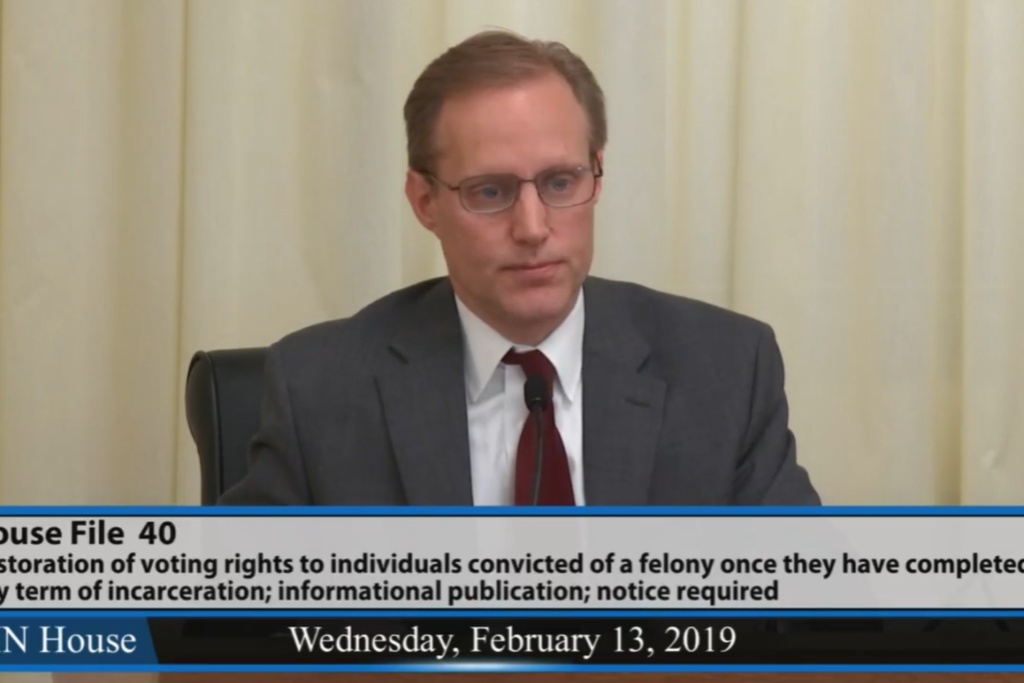
Here’s how CAE describes the process: “A voter lands on the challenged list after county election officials attempt to verify their eligibility. One of the tools county officials use is the mailing of a postcard to the address the voter used to register. If the postcard comes back as undeliverable, that raises a red flag about that voter’s eligibility and is supposed to trigger some investigation.”
There were just over 20,000 voters who registered on Election Day in the city of Minneapolis and CAE mailed postcards to a little over half of them. Of the more than 11,857 postcards CAE mailed, 228 were returned from dormitories or housing near the University of Minnesota and Augsburg campuses. Three cards were returned from Days Hotel near the University of Minnesota campus as well. Overall, 887 postcards were returned as undeliverable.
“That is, there is no such person with that name living at that address,” the report notes. This does not necessarily mean these votes were fraudulent, but they are “at least questionable and may in fact represent voter fraud,” according to the report.
There are a number of reasons postcards were returned, such as data entry errors and street numbers that don’t exist.
“Secretary Simon could easily confirm or dispute these findings and conclusions by releasing the data he has from the 2020 election regarding postal verification cards and challenged voters,” the report says. “The bottom line is this list deserves more scrutiny and Secretary Simon should show us the data on challenged ballots. Counties should make public the results of their postcard mailings so groups like the Minnesota Voters Alliance and the press can investigate.”
Supreme Court sides with Simon
Election Day registration was criticized in a 2018 report by the Office of Legislative Auditor, which ultimately led to a lawsuit by Minnesota Voters Alliance, who argued that the list of challenged voters, like “felons voting before they were eligible or people voting from bogus addresses,” should be made public.
Challenged voters are individuals who register and vote on Election Day but have their eligibility “questioned after the fact by county election officials.” The legislative auditor’s report found 26,000 voters who were identified as “challenged” in the Statewide Voter Registration System during the 2016 general election.
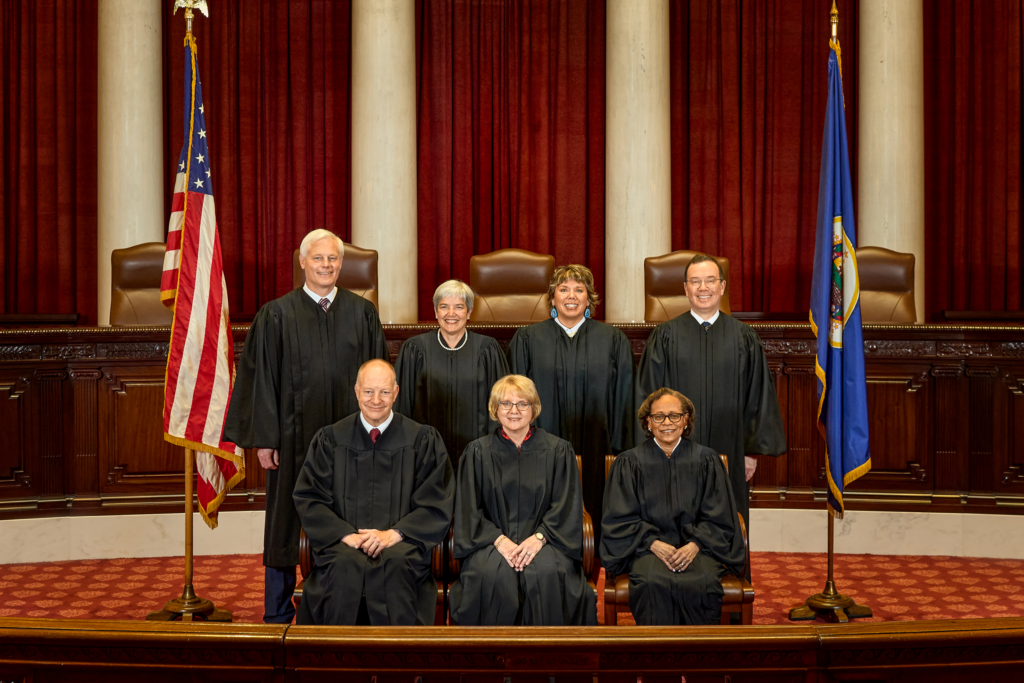
“It’s bad enough these voters were able to vote in 2016. It is even worse that they were still on a challenge list two years later and allowed to vote again,” CAE states in its report.
The lawsuit sought the current list of challenged voters in the SVRS, but Simon’s office argued that the information couldn’t be made public under the Minnesota Data Practices Act.
The MVA won its case in district court and at the appellate level, but the Minnesota Supreme Court sided with Simon.
“Voters should not be allowed to vote until their eligibility has been determined,” CAE says.
Reforms
To combat these weaknesses, the report encourages the Minnesota Legislature to pass a voter ID law, institute provisional balloting, and hold Simon accountable for the contested voter data.
Provisional balloting is the practice of segregating the ballots of voters whose eligibility is in question on Election Day. The ballots are only counted after a voter’s registration information is verified.
Most states with same-day voter registration have provisional balloting in place, except for Minnesota, New Hampshire, and Idaho. But in New Hampshire, poll workers take a photo of new voters and require them to fill out an affidavit swearing to their eligibility, according to CAE’s report.
Idaho does not have provisional balloting but does require voters to present an ID. This makes Minnesota’s voting system “the weakest in the nation,” CAE determined. A February poll found that 69% of Minnesotans favor stronger voting laws like photo ID requirements.
“The 2018 report from the legislative auditor, our postcard experiment and Steve Simon’s inexplicable refusal to release the data all lead to the same conclusion: Minnesota’s system of Election Day registration without provisional ballots is the weakest in the nation and should be strengthened,” the report concludes.
“Voters need to understand that Minnesota’s current electoral system is the type of system one would design if the objective were to facilitate election fraud, not the kind of system one would design to achieve ballot integrity.”
Megan Olson
Megan Olson is a 2020 graduate of the University of Minnesota with degrees in political science and history. She works in public affairs in addition to serving on the Legislative Advisory Council for School District 196. She is also on the school board for FIT academy, a charter school in Apple Valley.



